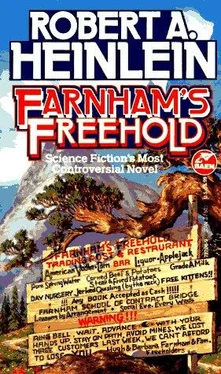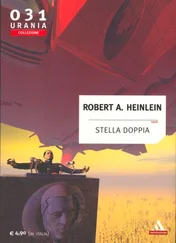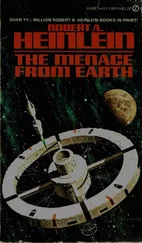Robert Heinlein - Farnham's Freehold
Здесь есть возможность читать онлайн «Robert Heinlein - Farnham's Freehold» весь текст электронной книги совершенно бесплатно (целиком полную версию без сокращений). В некоторых случаях можно слушать аудио, скачать через торрент в формате fb2 и присутствует краткое содержание. Жанр: Фантастика и фэнтези, на английском языке. Описание произведения, (предисловие) а так же отзывы посетителей доступны на портале библиотеки ЛибКат.
- Название:Farnham's Freehold
- Автор:
- Жанр:
- Год:неизвестен
- ISBN:нет данных
- Рейтинг книги:4 / 5. Голосов: 2
-
Избранное:Добавить в избранное
- Отзывы:
-
Ваша оценка:
- 80
- 1
- 2
- 3
- 4
- 5
Farnham's Freehold: краткое содержание, описание и аннотация
Предлагаем к чтению аннотацию, описание, краткое содержание или предисловие (зависит от того, что написал сам автор книги «Farnham's Freehold»). Если вы не нашли необходимую информацию о книге — напишите в комментариях, мы постараемся отыскать её.
Farnham's Freehold — читать онлайн бесплатно полную книгу (весь текст) целиком
Ниже представлен текст книги, разбитый по страницам. Система сохранения места последней прочитанной страницы, позволяет с удобством читать онлайн бесплатно книгу «Farnham's Freehold», без необходимости каждый раз заново искать на чём Вы остановились. Поставьте закладку, и сможете в любой момент перейти на страницу, на которой закончили чтение.
Интервал:
Закладка:
"Kitten, what do you do in the daytime?"
"Why, nothing mostly. Sluts of my subcaste mostly don't have to work if they have night duty. Since I'm having duty every night I'm allowed to stay in the sleep room until midday. So I do, even if I'm not sleepy, because the slutmaster is likely to put one to work if he catches one just wandering around. Afternoons- Well, mostly I try to stay out of sight. That's best. Safest."
"I see. You can hide out in here if you like. Or can you?"
Her face lit up. "If you give me a pass, I can."
"All right, I will. You can watch television- No, it's not on at that hour. Mmm, you don't know how to read. Or do you?"
"Oh, no, sir! I wouldn't dare petition."
"Hmm-" Hugh knew that permission to learn to read could not be granted even by Memtok; it required Their Charity's permission and was granted only after investigation of the necessity. Furthermore, anything he did that was out of line jeopardized his thin chances of reunion with Barbara.
But- Damn it, a man had to be a man! "There are scrolls in here and a reader. Do you want to learn?"
"Uncle protect us!"
"Don't swear. If you want to-and can keep your pretty little mouth shut-I'll teach you. Don't look so damned scared! You don't have to decide now. Tell me later. Just don't talk about it. To anyone."
Kitten did not. It scared her not to report it, but she had a reflex for self-preservation and felt without knowing why that to report this would endanger her happy setup.
Kitten became substitute family life for Hugh. She sent him to work cheerful, greeted him with a smile when he came back, talked if he wanted to talk and never spoke unless spoken to. Most evenings she curled up 'in front of the television-Hugh thought of it as "the television" and it was in fact closed-circuit television under principles not known to him, in color, in three dimensions, and without lines.
It played every evening in the servants' main hall, from evening prayer until lights-out, to a packed house, and there were outlets in the apartments of executive servants. Hugh had watched it several evenings, expecting to gain insight into this strange society he must learn to live in.
He decided that one might as well try to study the United States by watching Gunsmoke. It was blatant melodrama, with acting as stylized as Chinese theater, and the favorite plot seemed to be that of the faithful servant who dies gloriously that his lord may live.
But it was only second in importance to Happiness in the morale of life belowstairs. Kitten loved it.
She would watch it, snapping her gum, and suppressing squeals of excitement, while Hugh read-then sigh happily when the program ended, accept her little drink of Happiness with profuse thanks and a touch of her forehead, and go quietly to sleep. Hugh sometimes went on reading.
He read a great deal-every evening (unless Memtok stopped in to visit) and half of every day. He begrudged the time he spent translating for Their Charity but never neglected it; it was the hopeful key to better things. He had found it necessary to study modern culture if he was to translate matters of ancient history intelligibly. The Summer Palace had a fair library; he was given access when he claimed necessity for his work-Memtok arranged it.
But his true purpose was not translation but to try to understand what had happened to his world to produce this world.
So he usually had a scroll in the reader, in his office, or in his living room. The scroll system of printing he found admirable; it mechanized the oldest form of book into a system far more efficient than bound leaves-drop the double cylinder into the reader, flip it on, and hold still. The letters raced across in front of his eyes several hundred feet at a whack, to the end of the scroll. Then the scroll flipped over and chased back the following line, which was printed upside down to the one just scanned.
The eye wasted no time flipping back and forth at stacked lines. But a slight pressure speeded the gadget up to whatever the brain could accept. As Hugh got used to the phonetics, he acquired speed faster than he had ever managed in English. But he did not find what he was looking for.
Somewhere in 'the past the distinctions between fact, fiction, history, and religious writings seemed to have been rubbed out. Even when he got it clear that the East-West War that had bounced him out of his own century was now dated 703 B.C. (Before the Great Change), he still had trouble matching the world he had known with the "history" set forth in these scrolls.
The war itself he didn't find hard to believe. He had experienced only a worm's-eye view of the first hours but what the scrolls related matched the possibilities: a missile-and-bomb holocaust that had escalated in its first minutes into "brilliant first strike" and "massive retaliation" and smeared cities from Peiping to Chicago, Toronto to Smolensk; fire storms that had done ten times the damage the bombs did; nerve gas and other poisons that had picked up where fire left off; plagues that were incubating when the shocked survivors were picking themselves up and beginning to hope-plagues that were going strong when fallout was no longer deadly.
Yes, he could believe that. The bright boys had made it possible, and the dull boys they worked for had not only never managed to make the possibility unlikely but had never really believed it when the bright boys delivered what the dull boys ordered.
Not, he reminded himself, that he had believed in "Better red than dead"-or believe in it now. The aggression had been one-sided as hell-and he did not regret a megaton of the "massive retaliation."
But there it was. The scrolls said that it had killed off the northern world.
But how about the rest of it? It says here that the United States, at the time of the war, held its black population as slaves. Somebody had chopped out a century. On purpose? Or was it honest confusion and almost no records? There had been, he knew, a great book burning for two centuries during the Turmoil, and even after the Change.
Was it lost history, like Crete? Or did the priests like it better this way?
And since when were the Chinese classed as "white" and the Hindus as "black"? Yes, purely on skin color Chinese and Japanese were as light as the average "white" of his time, and Hindus were certainly as dark as most Africans-but it was not the accepted anthropological ordering of his day.
Of course, if all they meant was skin shade-and apparently that was what they did mean-he couldn't argue. The story maintained that the whites, with their evil ways, destroyed each other almost to the last man... leaving the innocent, charitable, merciful dark race-beloved by Uncle the Mighty-to inherit the Earth.
The few white survivors, spared by Uncle's mercy, had been succored and cherished as children and now again were waxing numerous under the benevolent guidance of the Chosen. So it read.
Hugh could see that a war which smeared North America, Europe, all of Asia except India, could kill off most whites and almost all Chinese. But what had happened to the white minority in South America, the whites of the Union of South Africa, and the Australians and New Zealanders?
Search as he would, Hugh could not find out. All that seemed certain was that the 'Chosen were dark whereas servants were pale faces-and usually small. Hugh and his son towered over the other servants. Contrariwise, the few Chosen he had seen were big men.
If present-day whites were descended from Australians, mostly-No, couldn't be, Aussies had not been runts. And those "Expeditions of Mercy"-were they slave raids? Or pogroms? Or, as the scrolls said, rescue missions for survivors?
The book burnings might account for these discrepancies. It wasn't clear to Hugh whether all books had been put to the torch, or possibly technical books had been spared-for it was clear that the Chosen had technology superior to that of his time; it seemed unlikely that they had started from scratch.
Читать дальшеИнтервал:
Закладка:
Похожие книги на «Farnham's Freehold»
Представляем Вашему вниманию похожие книги на «Farnham's Freehold» списком для выбора. Мы отобрали схожую по названию и смыслу литературу в надежде предоставить читателям больше вариантов отыскать новые, интересные, ещё непрочитанные произведения.
Обсуждение, отзывы о книге «Farnham's Freehold» и просто собственные мнения читателей. Оставьте ваши комментарии, напишите, что Вы думаете о произведении, его смысле или главных героях. Укажите что конкретно понравилось, а что нет, и почему Вы так считаете.










